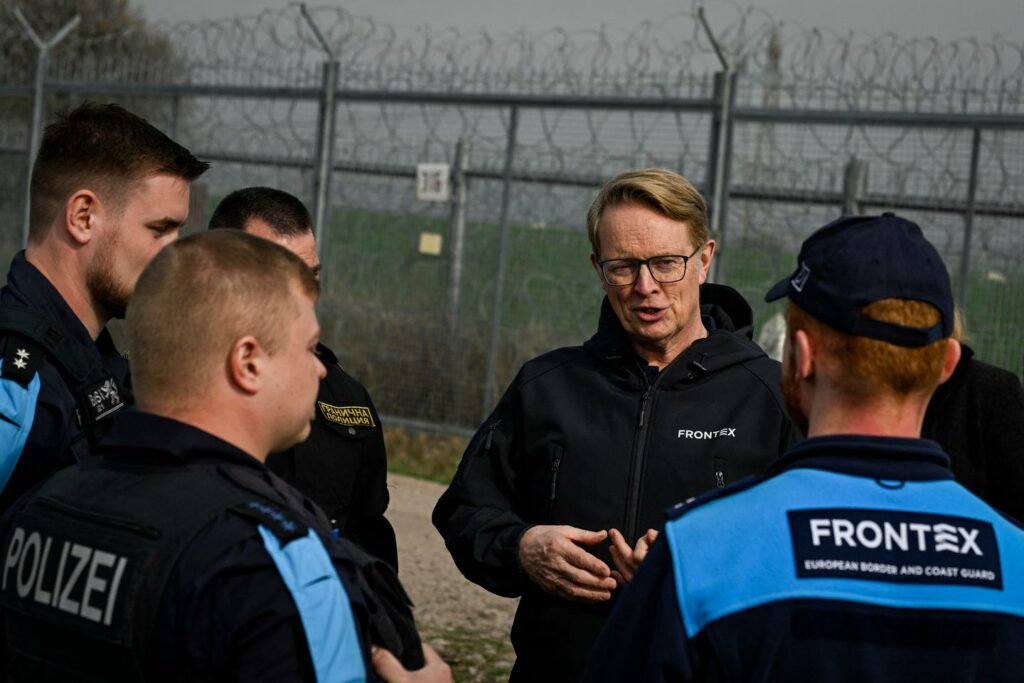Europe’s taboos on the issue of immigration are being broken one by one. As national leaders of European Union (EU) countries meet in Brussels on Thursday, October 17, and Friday, October 18, for their autumn Council meeting, this controversial topic will be at the forefront of every conversation. To foster discussion, EU Commission President Ursula von der Leyen has sent them a long letter, promising them new European legislation to facilitate deportations, in addition to the Pact on Migration and Asylum adopted in the spring, which some countries such as Spain want to apply as soon as 2025. Today, asylum seeker returns are one of the weak points of the European system, with less than 20% of rejected asylum seekers going back to their countries of origin.
Read more Subscribers only Why are European leaders obsessed with immigration?
While irregular entries fell by 42% in the first nine months of 2024, with 166,000 border crossings being recorded by the border guard agency, Frontex, Von der Leyen aims to go much further. She has proposed that the EU explore “innovative ways” to combat illegal immigration, whether these involve outsourcing asylum procedures to countries outside of Europe, as Italy is doing with Albania; facilitating deportations to third countries; or creating “return hubs” outside of Europe as part of the new law on deportations. Following the recent European migration agreements with Tunisia, Egypt and Lebanon, she has also proposed to begin negotiations with Senegal, or even with Mali.
While some member states, such as Denmark, Austria and Italy, have recently been campaigning to get these “innovative ways” onto the European political agenda, Brussels had not previously considered completely taking them on board. However, the political situation has changed, and several barriers to accepting such ideas have been breached. “Even Luxembourg, which was very skeptical about innovative solutions, is no longer opposed to them,” remarked a European diplomat, with some surprise.
Shifting political balance
Two years after post-fascist Italian Prime Minister Giorgia Meloni came to power, making the fight against immigration out to be her top priority, the conservative right and the far right have flourished in both the June European elections and national ones, altering the political balance in Brussels.
The European Parliament thus leans further to the right, with the European People’s Party (the conservative group) not only being able to form a majority with traditional liberal and socialist forces, but also – and this is the new twist – with far-right groups of MEPs, who are now able to promote their anti-immigration agenda. At the same time, the Council comprises more and more countries governed by coalitions that either include the far right or are supported by its forces, as in the Netherlands, Sweden, Finland and perhaps, soon, Austria.
You have 61.97% of this article left to read. The rest is for subscribers only.
Source link : http://www.bing.com/news/apiclick.aspx?ref=FexRss&aid=&tid=67108f895bd84339acc2bbda28669bbf&url=https%3A%2F%2Fwww.lemonde.fr%2Fen%2Finternational%2Farticle%2F2024%2F10%2F17%2Fimmigration-takes-center-stage-once-again-at-the-european-council-s-autumn-meeting_6729639_4.html&c=12716715655028444998&mkt=de-de
Author :
Publish date : 2024-10-16 18:30:00
Copyright for syndicated content belongs to the linked Source.
